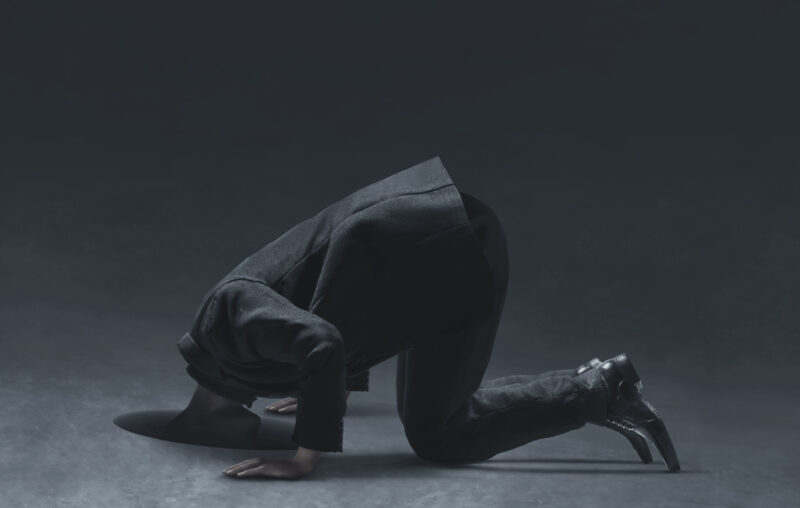Orwell Exposed the Cowardice of Journalists and Intellectuals

George Orwell had little hope that the lies of totalitarians would be exposed by a free press. His essay “The Freedom of the Press” was intended as the preface to Animal Farm, but was not published until 1972. Orwell revealed that the United Kingdom’s Ministry of Information (MOI) (created during the Second World War) advised Orwell’s publisher not to publish Animal Farm since it would be offensive to “Russian Soviets.”
Orwell’s thesis was that journalists, not the government, are the biggest censors:
[T]he chief danger to freedom of thought and speech at this moment is not the direct interference of the MOI or any official body. If publishers and editors exert themselves to keep certain topics out of print, it is not because they are frightened of prosecution but because they are frightened of public opinion. In this country intellectual cowardice is the worst enemy a writer or journalist has to face.
Today’s cowardly journalists have suppressed stories of Hunter Biden’s laptop, doubts about the efficiency of masks and lockdowns, questionable safety profiles of vaccines, concerns that vaccines didn’t prevent transmission, questions about U.S. policy in Ukraine, and challenges to the global warming orthodoxy.
While the Biden administration did twist the arms of social media companies to censor ordinary people, it didn’t have to censor journalists. Orwell wrote: “Unpopular ideas can be silenced, and inconvenient facts kept dark, without the need for any official ban.” He explained,
At any given moment there is an orthodoxy, a body of ideas which it is assumed that all right-thinking people will accept without question. It is not exactly forbidden to say this, that or the other, but it is ‘not done’ to say it… Anyone who challenges the prevailing orthodoxy finds himself silenced with surprising effectiveness. A genuinely unfashionable opinion is almost never given a fair hearing, either in the popular press or in the highbrow periodicals.
In the following paragraph, Orwell painted a portrait of our time. As you read, substitute vaccines, gender reassignment surgery for teens, green energy, etc., for “Soviet Russia”:
At this moment what is demanded by the prevailing orthodoxy is an uncritical admiration of Soviet Russia. Everyone knows this, nearly everyone acts on it. Any serious criticism of the Soviet régime, any disclosure of facts which the Soviet government would prefer to keep hidden, is next door to unprintable. And this nation-wide conspiracy to flatter our ally takes place, curiously enough, against a background of genuine intellectual tolerance. For though you are not allowed to criticise the Soviet government, at least you are reasonably free to criticise our own.
Orwell was not surprised by “the servility with which the greater part of the English intelligentsia have swallowed and repeated Russian propaganda,” even though they had “no direct pressure to falsify their opinions.”
Big Pharma’s power was already an issue almost eighty years ago. Orwell observed, “Notoriously, certain topics cannot be discussed because of ‘vested interests’. The best-known case is the patent medicine racket.”
Unfortunately, despite raising the alarm, Orwell adds a qualifier to his support for freedom of speech:
If the intellectual liberty which without a doubt has been one of the distinguishing marks of western civilisation means anything at all, it means that everyone shall have the right to say and to print what he believes to be the truth, provided only that it does not harm the rest of the community in some quite unmistakable way.
Today, of course, the harm to the community qualifier is used by Google and others to censor legitimate differences of opinion.
Just as Hayek warned in The Road to Serfdom, Orwell warned, “It is only, or at any rate it is chiefly, the literary and scientific intelligentsia, the very people who ought to be the guardians of liberty, who are beginning to despise it, in theory as well as in practice.”
Today, authoritarians claim they are defending democracy yet do so by illiberal means. Orwell observed these tactics and reported “a widespread tendency to argue that one can only defend democracy by totalitarian methods. If one loves democracy, the argument runs, one must crush its enemies by no matter what means.”
The enemies to be crushed included “those who ‘objectively’ endanger it by spreading mistaken doctrines.” Today’s censors also use this misinformation argument.
Worse, Orwell explains intellectuals justified Stalin’s purges by claiming the victims’ “heretical opinions … ‘objectively’ harmed the régime, and therefore it was quite right not only to massacre them but to discredit them by false accusations.”
This is not an essay to consider the cancellation of health professionals, authors, and academics. But if you believe intellectuals oppose “false accusations” in service of their perceived good cause, Orwell would say you are wrong.
Orwell observed great enthusiasm for Stalinist Russia was “only a symptom of the general weakening of the western liberal tradition.” He warned, “If you encourage totalitarian methods, the time may come when they will be used against you instead of for you.”
Any tribal adoption of an “orthodoxy” is problematic. Orwell observed, “The enemy is the gramophone mind, whether or not one agrees with the record that is being played at the moment.”
Can Western civilization survive the illiberalism Orwell observed? Orwell had his doubts:
[I]intellectual freedom is a deep-rooted tradition without which our characteristic western culture could only doubtfully exist. From that tradition many of our intellectuals are visibly turning away. They have accepted the principle that a book should be published or suppressed, praised or damned, not on its merits but according to political expediency. And others who do not actually hold this view assent to it from sheer cowardice.
Orwell wrote, “If liberty means anything at all it means the right to tell people what they do not want to hear.” Today, journalists and intellectuals tell us that freedom of expression is not essential; rather than being a condition by which civilization progresses, freedom of expression is a menace to “democracy.” With such beliefs, Orwell would warn, we are creating our own dystopia.










